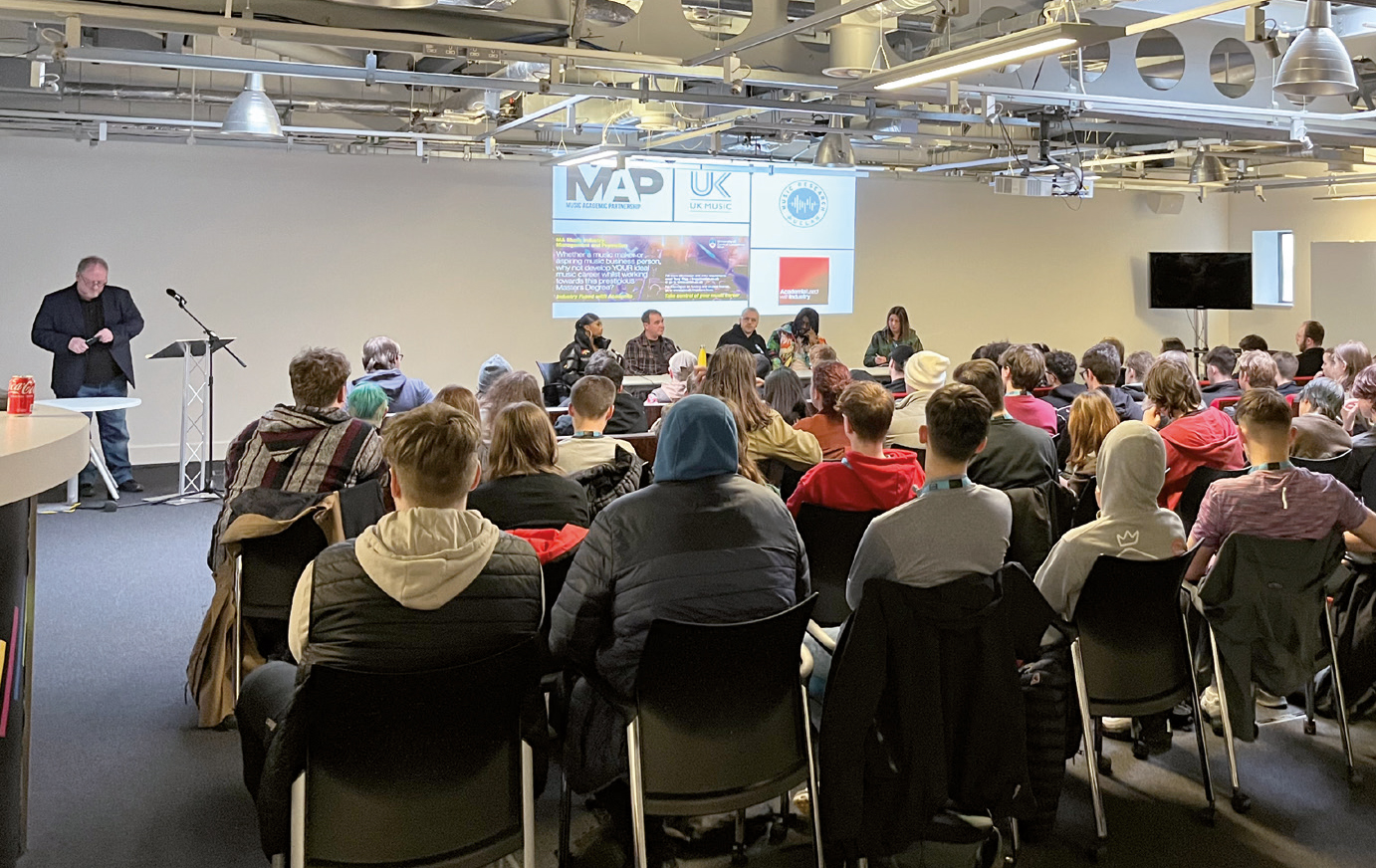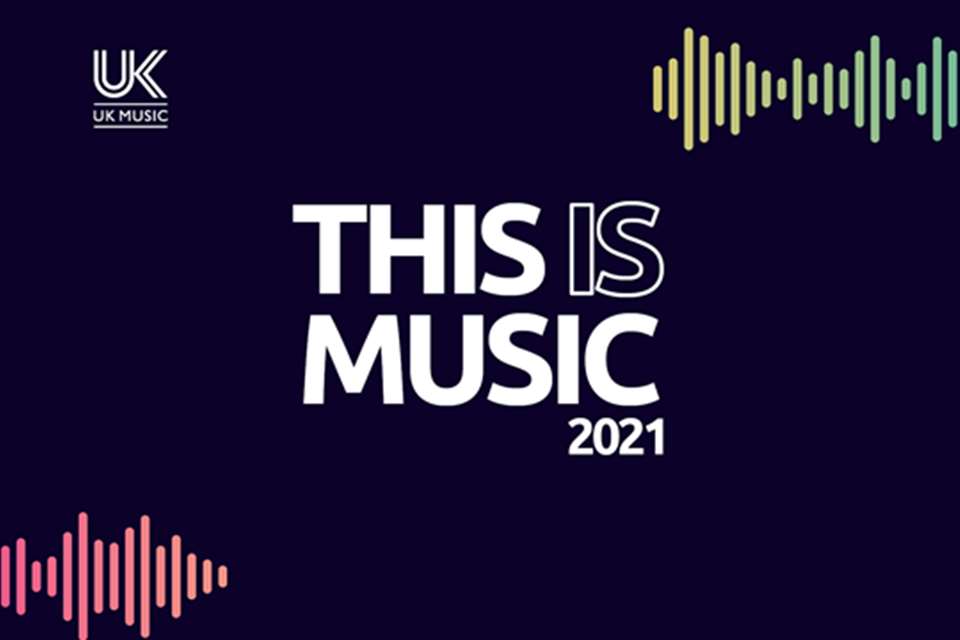Music career pathways
Oliver Morris
Saturday, April 1, 2023
Dr Oliver Morris, director of education and skills at UK Music, introduces the many pathways for young people pursuing a career in the creative industries.

© Adobe Stock / Nuthawut
Navigating a route towards a music career can be complex and involves a lot of questioning (others as well as yourself), a certain amount of good fortune, hard work and a degree of open-mindedness. I’d recommend anyone interested in music follow as many social media accounts of organisations and companies of interest to keep up to date with developments, opportunities and events. Further, there are lots of fantastic newsletters regarding industry news that you can sign up to.
The creative industries are one of the UK’s most successful and recognisable sectors, and the figures are impressive. In 2019, pre-Covid, the creative industries contributed £115.9bn to the economy, with music contributing £5.8bn and employing nearly 200,000 full-time equivalent jobs according to UK Music’s research. We are already seeing a bounce-back after Covid and a resurgent music industry means opportunities.
What do we mean by ‘music career’?
There are roles such as singer, musician, DJ, conductor and so on that are literally ‘out front’; but there are many more roles that are public facing and less well-known. Taking some of the main parts of the industry associated with UK Music’s members as an example, we see label managers, featured artists, music managers, songwriters and composers, music publishers, music producers, supporting musicians and those working in collecting societies (collecting or distributing rights income).
When discussing careers in music, it helps to think holistically and encourage people with a passion for a career in the industry to explore its breadth. Over the years I’ve met some fascinating characters who may have shifted in their career but are still exploring what it means to be ‘in music’. These include a classically-trained cellist who is currently an alternative artist and composer, and a drummer-turned-drum-technician who ended up as a tour manager for one of the biggest bands to come out of the UK. The point being, nearly everyone you meet is constantly evolving.
What options are there?
In a word, loads! There is a list of useful links at the end of this article but this is merely the tip of the iceberg. I have listed the main options and encourage you to explore and share these with students. It’s worth noting that training – much like industry roles themselves – can be less linear than in other professions. Also, there are many opportunities where soft skills, attitude and experience (however gained) will count for a lot.
There are many great resources for communicating the options and filtering thoughts. A project that UK Music has worked on with other creative industry bodies is the DCMS-supported Discover Creative Careers (see link below). Although elements of this project focus on England, for funding reasons, its website and resources are useful to all and are aimed at helping young people see what careers exist and what might suit them. Likewise, UK Music has a large education section with job profiles, a careers pack and information on other resources. UK Music members all have useful information online and run and support a range of events across the country, so it’s worth following them – and UK Music of course! – on socials.
There are many fantastic qualifications available from awarding bodies such as UAL, RSL and Trinity College London, and UK Music works closely with all of these and more on our Music Academic Partnership (MAP). Providers such as Access Creative College offer innovative and industry-focused courses in music that have additional ties; for example, we are working with the college to link students to record labels in their creative projects and on securing a range of fantastic speakers for its careers week.
We have been running the Outstanding MAP Graduate Awards for a number of years now – the aim being to celebrate the success of recent graduates from our MAP members and to highlight the excellent work done by MAP institutions on behalf of the music industry and talent pipeline. The link to 2021 nominees and winners will help communicate what kinds of careers are available.
Courses and apprenticeships
Higher education provides a huge array of options. We work with some amazing institutions through our MAP network, and below are examples of the types of courses on offer. It’s worth remembering that if an applicant is unsure whether they meet the entry requirements, they can always contact the institution in question.
Music practice and performance
An obvious place to start, this type covers jazz to folk, electronic music to classical, and rock to pop. If a student has a passion for a particular genre or tradition, there’s a course to suit. Many courses also have integrated music business and musicology modules, thus ensuring well-rounded professionals upon graduation.
Within this area, there are electronic forms of music-making and production. Here, the creation of original music is key and the possibilities are endless. A spin-off (no pun intended) from this is DJing and there are courses that combine the two.
Studio production
More traditional production courses teach all the skills needed to develop a career working with other artists to record tracks. Often, producers dabble in musicianship and vice-versa and there can be lots of movement between the two, especially early in a career.
Composition
Composition skills are in huge demand due to the growing use of original music across multiple media. Games and film composition courses, for example, offer the ability to develop as a composer but with a focus on practical application within these media. ‘Sonic art’ may also be of interest to student composers and performers. The design of sound and its application in a range of environments (gigs, exhibitions, cinemas etc.) is at the core of degrees such as sound/audio engineering and sound design.
Music business, industry management
The music business can be complex, with artist contracts, publishing deals, intellectual property and performing rights all demanding administrative, legal or financial skills as well as an interest in music. The growth of AI, streaming and new ways of touring has brought further complexity but also opportunity. There are many strands to explore within courses in music industry management or business.
Event management
Live events management is in high demand, with roles such as light or sound designers, tour managers, stage managers, set designers/builders and crew members required. You can find some really exciting courses in these across the UK.
 © COURTESY OF UK MUSIC
© COURTESY OF UK MUSIC
MAP event at the University of Central Lancashire
Apprenticeships
For those who are keen to go straight into working, or don’t feel university is right for them, apprenticeships are a fantastic option – not least, because students earn while they learn. Please note that apprenticeships vary across all nations of the UK, so it’s best to research these locally. The following information applies to England.
UK Music led on the development of the Level 4 Assistant Recording Technician apprenticeship, which is available now, and has other apprenticeships in the pipeline. For more general apprenticeships, such as in business, there are existing schemes that the music industry already draws on.
For those excited by the live events side, there are options here such as the Level 3 Live Event Technician apprenticeship. Also relevant to England are T Levels: the two-year Level 3 technical qualifications that are equivalent in scale to three A Levels. These focus on defined occupational fields with a mandatory industry placement. Music does not specifically feature in the T Level closest to our industry: Media, Broadcast & Production. We feel that the range and proven value of existing Level 3 courses in music and music related subjects, however, are serving young people and the industry very effectively.
What next?
Some thoughts to convey to those starting out:
- Really engage with your peers and the opportunities locally to get involved, and if nothing exists that excites you, do it yourself. In short, get started!
- Start as you mean to go on and get to know the landscape. Know the elements that make up the whole industry, and how the different parts fit together.
- Find the local, regional and national organisations that are discussing the things you’re interested in and that may be able to support you.
- Hone your craft: if you’re a musician, play; if you’re a journalist, write; or if you’re a manager, manage. Chat to someone already doing these roles. Doing and discussing will help, and don’t be afraid to ask questions.
- Don’t undervalue yourself – you’ll have some skills and experiences that companies need (the younger generation tends to be digitally native, for example).
Careers in the creative industries are varied, and there are plenty of roles and skills needed that aren’t ‘creative’ – if you love music but can’t play an instrument, there are still loads of opportunities.
Finally, I’d encourage students to work on their soft skills – those things that will always be appreciated – as music can be a very person-to-person business. Be the person that other people want to invite back. Oh, and remember to have fun!
Links and references
UK-wide:
- ukmusic.org http://ukmusic.org/education-skills/music-academic-partnership-map
- ukmusic.org/graduate-awards/outstanding-map-graduate-award-2021
- jamesonline.org.uk – directory of all colleges and universities offering music courses
- discovercreative.careers – directory of careers in creative industries
- screenskills.com – careers, jobs and training in film, TV, VFX, animation and games
- ccskills.org.uk – creative and cultural sector skills
Regional:
- Music Fund Wales – anthem.wales
- London Music Fund – londonmusicfund.org
- Belfast’s dedicated music hub – ohyeahbelfast.com
- Scottish Music Industries Association – smia.org.uk
- Music Local – musiclocal.co.uk




